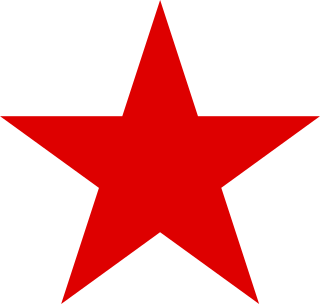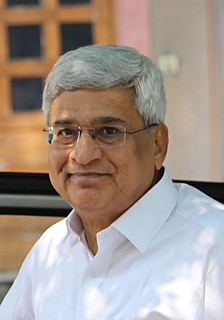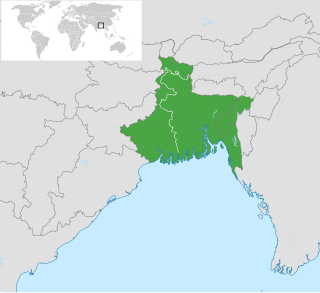
In political science, a communist party is a political party that seeks to realize the social and economic goals of Communism through revolution and state policy. The term communist party was popularized by the title of the Manifesto of the Communist Party (1848), by Karl Marx and Friedrich Engels. As a vanguard party, the communist party guides the political education and development of the working class (proletariat); as the ruling party, the communist party exercises power through the dictatorship of the proletariat. Lenin developed the role of the communist party as the revolutionary vanguard, when social democracy in Imperial Russia was divided into ideologically opposed factions, the Bolshevik faction and the Menshevik faction. To be politically effective, Lenin proposed a small vanguard party managed with democratic centralism, which allowed centralized command of a disciplined cadre of professional revolutionaries; once policy was agreed upon, realizing political goals required every Bolshevik's total commitment to the agreed-upon policy.

Bogyoke Aung San served as the 5th Premier of the British Crown Colony of Burma from 1946 to 1947. Initially he was a communist and later a social democratic politician. He was known as a revolutionary, nationalist, and as the founder of the Tatmadaw, and is considered the Father of the Nation of modern-day Myanmar. He was one of the founders of the Communist Party of Burma.
The South Seas Communist Party, also called the Nanyang Communist Party, was a communist party in Southeast Asia established in 1925 when the Communist Party of China separated its exile branches in the region to make way for local communist parties. SSCP succeeded earlier efforts by the Indonesian communist Tan Malaka to build communist parties in the region.

The Anti-Fascist People's Freedom League, or hpa hsa pa la (ဖဆပလ) by its Burmese acronym, was the main political alliance in Burma from 1945 until 1958. It was founded by the Communist Party of Burma (CPB) led by Thakin Soe, the Burma National Army (BNA) led by Aung San, and the People's Revolutionary Party (PRP) at a meeting held between 1–3 March 1945 as a reorganised version of the Anti-Fascist Organisation (AFO), formed to resist the Japanese occupation. The new organisation aimed to resist the Japanese occupation and achieve independence.

The Burma Socialist Programme Party was formed by the Ne Win's military regime that seized power in 1962 and was the sole political party allowed to exist legally in Burma during the period of military rule from 1964 until its demise in the aftermath of the popular uprising of 1988.

Prakash Karat is an Indian communist politician. He was the General Secretary of the Communist Party of India (Marxist) from 2005 to 2015.

Communist Party of Nepal (Burma), initially known simply as Communist Party of Nepal or Communist Party of Nepal , was a communist party in Nepal. The party emerged from a split in the original Communist Party of Nepal in 1962, representing the pro-Soviet sector of the party. Its main leader until 1983 was Keshar Jung Rayamajhi, who had been the general secretary of the original CPN.
Thakin Soe was a founding member of the Communist Party of Burma, formed in 1939 and one of Burma's most prominent Communist leaders.
The Japanese occupation of Burma was the period between 1942 and 1945 during World War II, when Burma was occupied by the Empire of Japan. The Japanese had assisted formation of the Burma Independence Army, and trained the Thirty Comrades, who were the founders of the modern Armed Forces (Tatmadaw). The Burmese hoped to gain support of the Japanese in expelling the British, so that Burma could become independent.

The Anti-Fascist Organisation (AFO) was a resistance movement against the Japanese occupation of Burma during World War II. It was the forerunner of the Anti-Fascist People's Freedom League.

The Burma Workers Party, until 1958 the Burma Workers and Peasants Party, was a communist party in Burma, formed on 8 December 1950, by leftist elements of the Socialist Party. In December 1962 it merged with the People's Comrade Party to form the United Workers Party. In March 1964, it was among the many parties banned by decree of the Revolutionary Council.
The Burma Socialist Party, initially known as the People's Freedom (Socialist) Party was a political party in Burma. BSP was the dominant party in Burmese politics after 1948. It was the dominant political force inside the Anti-Fascist People's Freedom League.
The Communist Party of Burma is the oldest existing political party in Myanmar. It was founded on 15 August 1939 at a meeting attended by seven founding members, including Aung San, the father of modern-day Myanmar. The party was banned in 1953 by the government of Myanmar, and its operation remains illegal in the country.
H.N. Goshal (Burmese: သခင်ဘတင်, IPA: [θəkʰɪ̀ɴ ba̰ tɪ̀ɴ]; also known as Thakin Ba Tin, d. 1967) was a communist politician and trade union leader in Burma, of Bengali origin. Goshal was one of the foremost leaders of the Communist Party of Burma and the most prominent theoretician of the party for several years. During the height of the Cultural Revolution Goshal was marginalized and killed in an inner-party purge.

The Communist Party (Burma), sometimes referred to as the Red Flag Communist Party, was a communist party in Burma. The party was formed after a more radical faction broke away from the Communist Party of Burma in 1946. In the same year, it began a protracted armed insurgency; first against British rule, then against the Burmese government. The party was led by Thakin Soe, a firebrand communist leader. In the mid to late 1970s, the party lost influence and was militarily defeated after the capture of Thakin Soe in 1978.
Thakin Tin Mya was a Burmese politician, who served as political commissar in the Seventh Military Region of the Burma National Army.

The United Wa State Party is a political organisation in Myanmar (Burma), which campaigns for the interests of the Wa people. It is the de facto ruling party of Wa State, an unrecognised state in Northern Shan State. Its armed wing is the United Wa State Army (UWSA), and the chairman and commander in chief is Bao Youxiang.
Amar Nag alias Yebaw Tun Maung or U Hla (1917–1968), was one of the founding leaders of the communist movement in Burma. Dr. Nag was active in the struggle for Burmese independence. He was an important leader of the Communist Party of Burma, but was killed in an ambush in 1968.

The Communist insurgency in Myanmar was led primarily by the Communist Party of Burma (CPB), and the Communist Party (Burma). The conflict ended in 1988, when the armed wing of the CPB disbanded following the Fall of Communism and the ousting of the Burmese socialist dictatorship.
The Communist Party of Arakan, also known as the Arakanese Communist Party, was a far-left political party and armed insurgent group in Arakan, Burma. It was founded in 1962 after a faction under the leadership of Arakanese political leaders Kyaw Zan Rhee and Bo Maung Han broke away from the Red Flag Communist Party (RFCP).











